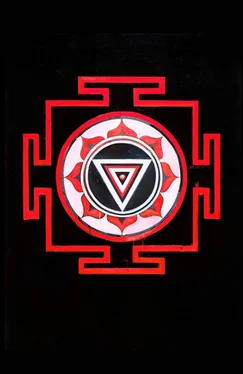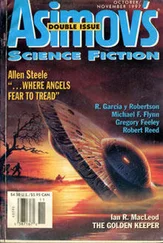Lisa was still asleep when I left, at dawn. I walked, contrition-brisk, to a taxi stand on the causeway. My shadow played like a laughing dog in the yellow morning. A sleepy taxi driver reluctantly accepted double the fare. The empty streets we drove were bright, cleaned by light.
The station, Bombay’s pagan cathedral, urged porters, passengers and burdens into passageways of crucial consequence, every seat precious; every seat important; every seat essential to someone’s destiny.
And when the Madras Express pulled out, at last, my window woke the streets for me, all the way through rain-stained suburbs to the tree line of green mountains and valleys, beyond the city’s grey hunger.
Again-and-again, again-and-again, the train’s rhythm chanted. I felt good: bad and good at the same time. My heart was a question; my head was a command.
Sri Lanka was risky. Lisa was right about that. But Abdullah had spoken to Sanjay, wresting my freedom from him in exchange for the mission I’d promised to do. And one job, like fifty others I’d done, was a small price to pay for a clean exit from the Company.
I was happy for Lisa, happy that she was free of me, if that was what she wanted. I was still feeling the same worried affection for her, but I had to start getting used to the fact that she was already gone: she was gone, and I was on a war train.
Lisa found her truth, and I found mine. I was still in love with Karla, and I couldn’t love anyone else.
It didn’t matter what intrigues Karla was plotting, with Ranjit or against him. It didn’t matter that she’d married someone else, or that I’d tried to love someone else. It didn’t matter if we couldn’t be more than friends. I loved her, and I always would.
I felt good, and bad: one bad mission away from good.
Again-and-again, the train wheels sang, again-and-again, again-and-again, as farms and fields and towns of dreams streamed past my window, and a shawl of sky misted distant mountains with the last of that year’s rain.
There was no moon. Clouds hid, afraid of the dark. Stars were so bright that whenever I shut my eyes they burned sparks on the dark inside. The wind was everywhere, playful, happy to see us out there on the surface of nowhere, and the ship plunged and rose gently, as if swimming through the waves, rather than floating on them.
I’d waited three days in Madras for just such a night, as had the seventy-seven others with me. Those waiting days had shrunk to minutes: minutes before midnight, minutes before leaving the danger of the ship for the greater danger of small boats, on the open ocean.
Waves licked at the prow, streaming in salted mists all the way to the stern where I stood, dressed in dark blue fatigues and jacket, one more camouflaged bundle on the camouflaged deck.
I looked at the stars, as the ship sighed through the waves, drifting between dark night and darker sea.
Most ocean-going cargo ships are painted white, cream or pale yellow above the waterline. In the event of an emergency at sea, such as dead engines or a ruptured hull, they can be seen from far by search and rescue vessels, or aircraft.
The Mitratta , a Panamanian coastal freighter of fifty thousand tons, was painted dark blue, everywhere, and dark blue tarpaulins covered the cargo and rig on the deck.
The captain ran the bridge on instrument lights. The ship was so dark that the forward running lights seemed like tiny creatures, diving into and out of the waves.
Figures huddled together like bundles of cargo, which, of course, we were. Smuggled people smuggle their dreams with them, and they whispered to one another often, but no word could be heard. Their whispers were always just softer than the lush of the waves. Victims of war become masters of silence.
I suddenly needed company. I made my rolling way along the deck to the first of several groups. I smiled at them, teeth in the darkness. They smiled back at me, teeth in the darkness.
I sat down beside them. They began whispering again.
They were speaking in Tamil. I couldn’t understand a word, but I didn’t mind. I was in the bubble-murmur of their voices, the gentle music of it dripping shadows around us on the painted steel deck.
A figure approached, and squatted down beside me. It was Mehmood, nicknamed Mehmu, my contact on the ship.
‘It’s a young war,’ he said softly, looking at the faces of the Tamils near us on the deck. ‘The Tamil homeland in Sri Lanka is an old idea, but the young are dying for it. Can you come with me now?’
‘Sure.’
I followed him until we reached the afterdeck.
‘They don’t trust you,’ he said, lighting two cigarettes, and passing me one. ‘It’s nothing personal. They don’t know who you are, or why you’re in the group. When you’re in a situation that only ever gets worse, like theirs, everyone’s a threat, even a friend.’
‘You stay on this ship for every tour?’
‘I do. We unload the legit cargo, and I go back with the ship to Madras.’
‘I wouldn’t want to do this every month. Those patrol boats we saw weren’t far away, and they’ve got big guns.’
He laughed quietly.
‘You know anything about the Tamil Muslims in Sri Lanka?’
‘Not much.’
‘Pogroms,’ he said. ‘Look it up.’
He laughed, but it was just sadness, finding a different way to his face. He straightened up.
‘The gold and passports you’re bringing will help,’ he said. ‘We have to buy people out of prison, and then we have to get them out of Sri Lanka to tell the world about our situation. For the others, it’s a new civil war. For us, this is a war we never start, but always have to fight. For us, this isn’t a matter of nationality, it’s a matter of faith.’
Faith, again. There wasn’t any pure or noble cause in what I was doing. There was no cause but my own. I was ashamed to think it, standing next to a man who risked his life for what he believed.
The hundred-gram gold ingots I was smuggling had been melted down from jewellery that the Sanjay Company had stolen or extorted. There was blood on it already, and I was carrying it: nothing noble, and nothing pure.
But there was still a stained-glass shard of faith somewhere inside. Mehmu’s sacred mission was a job, for me, it was true, but the same dark vessel carried both of us to the same dark war. And it was a war of one, for me: one man’s freedom from a gang that was once a band of brothers.
Faith is belief without fear, and freedom is one of faith’s perfections. Standing there on that smothered deck, listening to prayers in Arabic, Hindi, English, Sinhalese and Tamil, the stars so bright those tiny suns burned my eyes, I put my faith in freedom, and asked Mehmu for my gun.
He lifted his sweater to show me the handgun, stuffed into the belt of his trousers. It was a Browning HP, standard issue to Indian Army officers. The penalties for trading in them were severe, which was why the officers who sold them to us charged a premium.
I liked Mehmu, and wished that he could come with me to Sri Lanka. He was a fit, knowledgeable thirty-year-old, fluent in six languages, and had a confident eye. I didn’t like Mehmu’s gun.
‘What’s with the cannon?’
‘It’s a bit… conspicuous, I’ll give you that,’ he replied, looking around as he handed me the weapon and a magazine.
‘Conspicuous? This thing is a zebra in a line-up.’
I checked the gun, and flipped the safety on.
‘If you’re gonna get caught with a gun in this war,’ he said, ‘it’s gotta be this one. Any other gun, they’ll go to work on you for a long time, before they drop you from a helicopter into the sea, right about here, actually.’
Читать дальше












